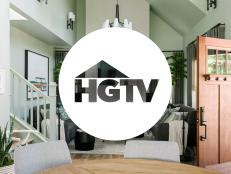5 Steps to Finding the Perfect Rental Home
Whether you're new to renting or rethinking your current living situation, the process of searching for a rental home can be time-consuming. Roughly one-third of all Americans rent, and while many of them are in early adulthood, many are also families, empty nesters and seniors. Fortunately, there are rentals for all household types and budgets. But to make your search smarter and more efficient, work through the process following these steps:
STEP 1: Determine what you can pay
STEP 2: Brainstorm the features you're seeking
STEP 3: Map your day
STEP 4: Choose your rental type
STEP 5: Tackle the application and approval process
Follow these five steps to find a rental home that's the right fit for your budget and lifestyle.
STEP 1: Determine what you can pay.
Before hunting for a rental, draw up a budget and take a hard look at where your money is going. If you've got some time before hitting the market for a new rental, run the numbers using services such as GoSimplifi, Mint, Yodlee, moneyStrands, LendingTree's MoneyRight or HelloWallet.
Generally speaking, it's recommended that most people spend no more than 30 percent of their income on housing costs. Does that seem doable to you, factoring in debt, commuting and grocery costs, savings and other expenditures? Regardless how you feel about the 30 percent recommendation, many landlords specify income limits -- like that your annual income be a specific multiple of monthly rent, or that your rent shouldn't exceed a specific percentage of your monthly income (say, 28 percent).
Keep in mind that in addition to rent, you'll need to budget for utilities (unless your landlord covers some or all of them), cable and Internet, and other potential extras available to renters such as parking, storage and coin-op laundry. And that's in addition to your fees for moving and furnishing your home -- which, in some cases, could require special furniture (say, long curtains and room dividers in a loft with tall ceilings, patio furniture for a balcony or house with a deck, storage accessories, etc.) to make the place livable.
STEP 2: Brainstorm the features you're seeking.
Beyond a basic bedroom and bathroom count, ask if there are other "nice-to-have" versus essential features:
- Do you want a patio or deck, or access to a backyard or shared outdoor space?
- Do you want a fireplace?
- Do you need a full bathroom, or would a shower do?
- If you're a foodie, do you want a gas stove in the kitchen?
- Will you be setting up a home office, and do you need electrical outlets or a nook within one of your home's rooms where you can place your workstation?
- Would you be willing to live on a ground floor, use stairs or take your chances on street parking?
And consider your compromises:
- Would you give up some space and a yard in the suburbs in exchange for a smaller, close-in place that had a park across the street?
- Would you live with a roommate in order to tap a pricey but trendy neighborhood, or would you rather fly solo somewhere quieter?
STEP 3: Map your day.
No, really -- do it. Cross-reference your geographic locations and schedule, and take a look at where you spend your time. Then check out what's available in those locations using tools like PadMapper (which uses mapping technology to plot listings from sites like Craigslist onto maps); HotPads, which offers "heat maps" that let you compare rental and for-sale home inventory across neighborhoods; or MyApartmentMap. What's your schedule like? What neighborhoods do you travel to and from daily or weekly? Do you drive to work, bike to work or use public transit -- or would that vary depending on your choice of neighborhood? What do you do on the weekends, and do you want to live near those places and activities or is it OK to live elsewhere? If you work late, or if you rise early, are there grocery stores and drugstores open during the hours you need to shop?
- Hang out: Spend a weekend day, an after-work evening or a pre-work coffee and early-morning commute in any neighborhood you're considering as part of your search. Do you like the vibe, the drive, the mix of friends in the area, the school choices for your kids? Is the commute doable at the hours you'd be making it? If you work from home, are there services convenient for you, like copy shops, co-working spaces (try Loosecubes to find out) and delis?
- Investigate services: Will you be close to the services that matter to you? WalkScore lets you run searches for a given address or neighborhood so you can see its proximity to coffee shops, restaurants, grocers, public transit and schools. Aside from grocers, drugstores and coffee shops, consider how near you are to public transportation (not just for you, but for friends who rely on it), schools for your children, gift and apparel stores and services particular to you including churches, veterinary or medical offices, package/mailing centers, a fitness center, etc.
- Research crime: Regardless of whether you choose a downtown or suburban place to live, get a read on where and what types of crime are happening in your area. In an area with a lot of car break-ins, maybe you'll want to garage your car. If home invasion is common or late-night muggings occasionally take place, maybe look for a building with a doorperson or 24-hour security. Perhaps residents who can walk to restaurants and nightlife feel the downside in terms of noise complaints or the occasional closing-time episode. Check sites like Neighborhood Scout, Spot Crime, Crime Mapping, Crime Reports and Nixle, as well as neighborhood blogs.
- Education: If choosing a rental in a specific school district is important, or if you want to evaluate school districts to narrow down your list of potential neighborhoods, check out School Digger or GreatSchools.
STEP 4: Choose your rental type.
This step will depend on how long of a lease term you're after and how big of a place you need. Depending on your market and your needs, you can rent a wide variety of home types from a variety of types of landlords. If you're looking for a short-term rental (six months or less), you may want to investigate a sublet (taking over someone else's lease or renting direct from an owner) or corporate housing, which is more expensive but convenient for someone new to an area. For longer-term rentals (typically 12 or more months), you'll find a wide variety of options on listings portals.
As for unit types, here's a look at the pros and cons of each:
Apartment in a high-rise apartment building
Pros: You'll live among lots of neighbors, maintenance is typically via a professional management company and your building may be centrally located in a walkable, urban area. You can probably also research large buildings more easily on blogs or apartment commentary sites.
Cons: Your unit may be smaller than options in suburbs, townhouses or single-family homes. It may be too small for a family. You will likely pay extra for parking in the building or a nearby lot. Management companies may be less flexible about credit scores or lease negotiation than small-fry landlords.
Townhouse
Pros: You'll have more privacy, with only one or two units on either side of you. You may have a yard, and the home's layout may be on two or more floors, meaning that despite the square footage residents can spread out and enjoy privacy within the home. You may have a patio or yard.
Cons: If you're subletting a townhouse directly from its owner, maintenance may not be predictable. You may be trading space for location, as some townhouses are in more suburban areas. Utilities may run slightly higher.
Accessory unit in a single-family home
Pros: These units are relatively private, likely situated in a cozy neighborhood and may be one-of-a-kind spaces. Renters may feel safer since landlord-owners live upstairs or next door. Laundry is often nearby or in a room shared with the landlord, and yard access is often included.
Cons: These units may be even smaller than the average apartment, and some landlord-homeowners create accessory units illegally -- meaning they haven't registered them with the city or may have used unlicensed or under-the-radar contracting work to renovate them. If utilities aren't separately metered, it may be hard to sort out bills with owners.
Single-family home
Pros: If you have a larger household, children, noisy habits (like playing music loud late at night) or pets who could benefit from a yard, a single-family home may make more sense than other rental options. You'll get a higher bedroom and bathroom count, as well as privacy.
Cons: Single-family homes can cost more to rent, and they may also carry expensive utility bills, especially if they are older and non-energy efficient. If owned and managed by individuals (versus a management company), it may take longer to get maintenance concerns addressed.
STEP 5: Tackle the application and approval process.
You've determined your budget, narrowed down a neighborhood and found a place you want to call home. Your work is almost over, but now it's time for the landlord to determine if you're qualified to rent the property. Here are some things to expect during the approval process:
- The background check: When you find a property you want to rent, landlords or property management companies will typically ask for an application authorizing them to run a background check on you and requesting permission to verify your employment, income and bank accounts or requesting that you supply this information in the form of pay stubs and phone numbers for references. You typically will pay for your application, often in the $25 to $45 range, and it may take a few weekdays to hear back from the landlord.
- Lease: Assuming your background is acceptable to the landlord, you will then negotiate a lease for a particular property. This is essentially a contract spelling out the terms of your rental, including when it begins and ends; the amount of deposit and how it is to be treated; who (if more than one resident will live in the unit) is responsible for payments; rules on the use of space (smoking or no smoking, pets or no pets); under what terms the landlord can enter (typically with a day's notice); what is and isn't included (utilities, for instance), etc.
- Negotiation: Keep in mind that many aspects of a lease are negotiable -- ranging from the lease term (or length of time you'll live there) to a laundry list of concessions or perks a landlord might throw in -- like one month free on a 12-month lease, free cable TV or reduced-price parking. You could even possibly negotiate that the landlord tackle a little light remodeling or let you paint the walls for a fee. Landlords may also place conditions on a lease before accepting you as a renter: Perhaps they want a guarantor or co-signor because of your youth or low credit score, or an extra deposit because your pet is heavier than the building's pet weight limit. Maybe a landlord would prefer to rent for a particular set of months due to seasonality of the unit or is interested in finding a month-to-month renter because of a pending change to the building (such as a sale or remodeling effort best accomplished when units are empty.)
- Deposit: Typically, when you move in you provide a landlord with a security deposit equivalent to one month of rent, as well as the first month of rent. The security deposit must be returned to you at move-out within the number of days or weeks set forth in your lease or as required in your local municipality or state. Knowing that paying two months of rent at once is tough for some renters, occasionally a landlord will let you pay your security deposit over several months. Keep in mind that if you damage the home beyond "normal wear and tear," the landlord may retain part of the deposit. What's "normal wear and tear"? That varies by landlord. But generally, normal wear and tear might mean the place could use a light carpet cleaning or some paint touchups at move-out, while excessive wear and tear might mean the carpet is so stained it needs to be replaced or that walls have holes in them where you installed a heavy piece of art or furniture.
- Other fees: In some markets, if you use a broker or real estate agent to locate an apartment, you will need to pay these professionals a fee for their services. Depending on the market, brokerage or agent you choose, your fees can vary from a flat, set amount to a proportion of your first year's rent. (In New York some agents are paid 15 percent of the first year's rent -- often more than two months' rent.) If you are hunting for a rental in a market where rentals are brokered, the longer you stay the less these fees hurt.
Jane Hodges is the author of Rent vs. Own: A Real Estate Reality Check for Navigating Booms, Busts, and Bad Advice.













































